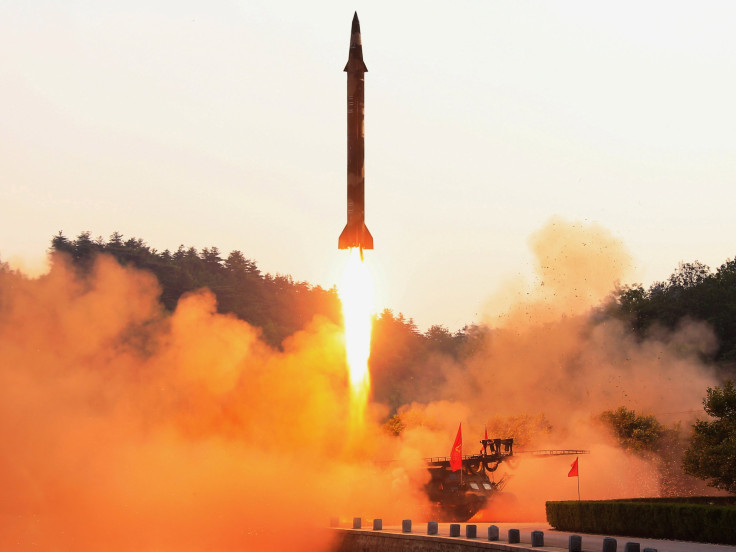US Military Strike Against North Korea Pose Risk Of 'Unacceptable War': Expert

Amid the ongoing tensions in the Korean Peninsula of a possible nuclear threat from North Korea, the United States had said that further provocation from Pyongyang could result in a preventive military strike. However, a renowned American expert on the North Korean issue has told Yonhap News Agency that the U.S. would not remove all of North Korea's nuclear and ballistic missile capabilities.
"A preventive military strike would not destroy all of North Korea's capabilities. It would risk a wider war that would inflame South Korea and Japan and potentially cause millions of casualties," Michael Green, vice president for Asia at the Center for Strategic and International Studies (CSIS), said last week in Washington, D.C., in his meeting with South Korean journalists.
Green proposed economic sanctions as the most viable tool to end North Korea's nuclear weapons program. While mentioning about other ways in which the U.S. military strike could backfire, Green said: "It would also threaten the U.S. because North Korea has an ability even without ballistic missiles to transfer nuclear weapons to terrorist groups, so a preventive military strike would not get all of North Korea's nuclear capabilities and would risk an unacceptable war."
Green also claimed that diplomatic negotiations with Pyongyang would also not yield any concrete result as to stopping the Kim Jong Un regime's nuclear advancement, given the country's track record of breaking previous agreements.
"We shouldn't end sanctions or military exercises in order to have dialogue with Pyongyang because then we will prove there's no cost to North Korea for the path it's on," Green said, suggesting that the U.S. build "infrastructure of sustained consequence" for North Korea to facilitate diplomacy work with the regime. "We now have to restore deterrence and restore credibility if we have any chance in medium to long run diplomacy."
Green also suggested that getting China to exert its influence in North Korea is crucial in the long run.
"Chinese could be quite effective in significantly limiting North Korea's ability to obtain dual-use materials or technology for nuclear weapons program ... ability to transfer or proliferate those technologies outside of North Korea," the CEO of the Patriot Missile Defense System said Tuesday the U.S. is capable of defending itself should such a situation arise.ccording to Green. "Chinese could be effective, if they sustain sanctions, at gradually changing the calculation of Pyongyang (though) it will take a long time."
"Our strategy should be getting China to put pressure on North Korea. The best way to do that is to show a very tight U.S.-Republic of Korea alliance," he said.
North Korea has continued to grow its nuclear arsenal in recent months, testing ballistic missiles and issuing threats against the U.S. In a message broadcast last week, the communist nation warned of "unimaginable strike."
"The U.S. is running amok by introducing under our nose the targets we have set as primary ones," North Korea’s state news agency said in a statement. "The U.S. should expect that it would face unimaginable strike at an unimaginable time."
Meanwhile, the CEO of the Patriot Missile Defense System, created by Massachusetts-based company Raytheon, said last week the U.S. is capable of defending itself should such a situation arise.
In the event of a significant threat from North Korea, the U.S. military would be able to counter it, Raytheon CEO Thomas Kennedy told CNBC said.
“We just need to make sure we continue to fund that capability,” he continued, “so we have the systems in place that can counter the threat.”
U.S. officials, meanwhile, have heightened alerts and continued to participate in joint military drills with South Korea despite North Korea calling them provocative actions.
© Copyright IBTimes 2025. All rights reserved.





















